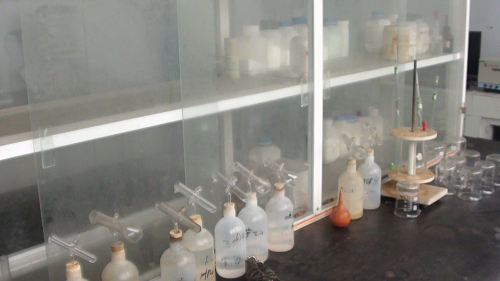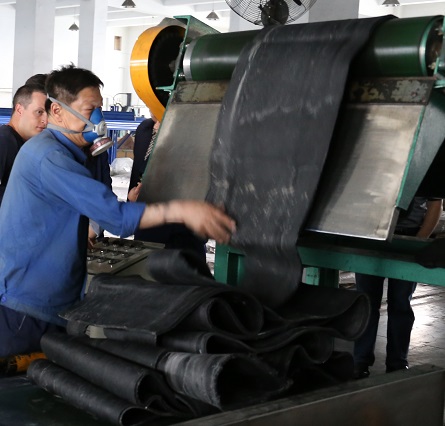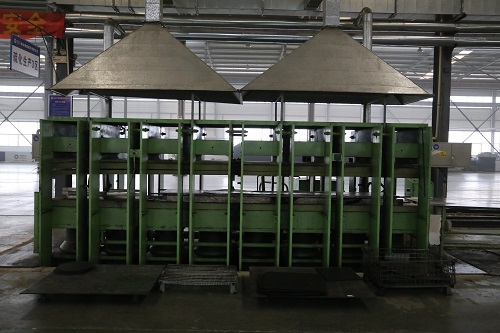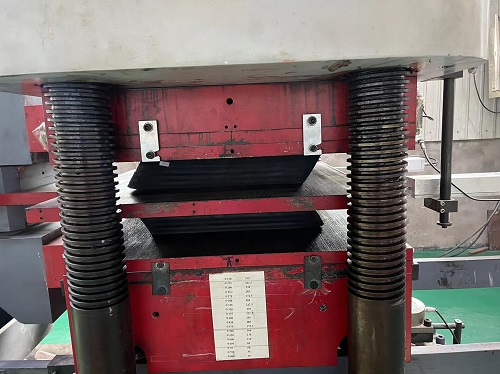1.Composition of rubber ingredients used for rubber bearings
Promoters, vulcanizing machines, reinforcing agents, main materials, anti-aging agents, plasticizer, functional additives, resins, etc

2.Process rubber refining, rolling, extrusion molding, vulcanization
Refining rubber
Preparation of raw rubber
Drying glue, cutting glue, selecting glue, breaking glue, and granulating raw glue
Preparation of compounding agents
Crushing, drying, screening, softening agent heating, filtration and evaporation, preparation of base rubber and paste Storage
Moisture-proof, fireproof and explosion-proof, preventing confusion
Plastic refining
Plasticity: the property of restoring to its original state
Elasticity: a property that cannot be restored to its original state
Plasticity: The size of rubber flowability
Mixing
Degree of dispersion
The incorporation of carbon black into rubber improves the physical and mechanical properties of the rubber material, and the reinforcing effect of carbon black on rubber is achieved through the formation of a dispersion of carbon black. The degree of dispersion of carbon black in rubber directly affects the processing performance of rubber materials and the quality of products.

Vulcanization is the final process of rubber bearing products.
It refers to the semi-finished product made by appropriately processing plastic rubber mixtures, and under certain external conditions (heating or radiation), through chemical factors or physical factors ,The process of converting into elastic rubber or hard rubber through the action of radiation, in order to obtain performance.
The essence of vulcanization is that the micro structure of rubber undergoes changes, and through cross-linking reactions, linear rubber molecules are transformed into spatial network structures (soft vulcanized rubber) or body structures (hard vulcanized rubber).

Purpose: To become valuable engineering materials with practical value
Sulfurization pressure, temperature, and time are the three elements
3. Testing process of rubber bearing material
1),All the rubber compounds we use on rubber bearing pads are produced internal our factory. The material into the factory including rubber collagen, black carbon, calcium power,etc,, many kinds of material. Then we will test purity of the material in our chemistry reagent room,
2),we will test some physical parameters of those material, such as the viscosity of collagen ,which use mooney viscosity and relaxation tester, also others as multi-function rubber rheometer , carbon black dispersion tester, which we call them rubber ingredient testing machine. According to different requests of the rubber used in different kinds of bearings(high damping rubber bearing, seismic isolation , rubber bearings ) ,there are different ingredient of rubber, which will also be tested in the next steps.
3),Testing of the vulcanized rubber material.
We will test the vulcanized rubber material next ,which including hardness,compression set, ozone resistance, tensile strength, elongation at break ,which will use tensile testing machine for row material,electronic universal testing machine , hardness tester
4), The most common method for stress-strain testing is tensile strength testing. The ability of rubber to stretch several times its initial length is one of its main characteristics
4.Finished rubber bearing testing
There are several testing items of rubber bearing. To test elastomeric bearing pad, the main important tests are vertical capacity and horizontal shear test.Normally, we think the vertical loading capacity is the only important testing item for a rubber bearing, in fact, shearing capacity is also very important, because it indicate the quality of internal rubber layers of the rubber bearing, if the quality is not good enough for internal rubber layers, the problem of tensile fracture, or separation of adhesive layer and steel plate may happen,so our company have strict quality control for the rubber bearing on horizontal deformation
For more production and testing details of equipment please view our website "technical capacities"
